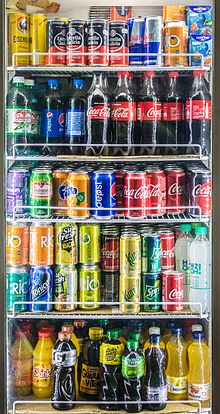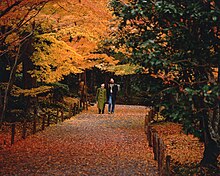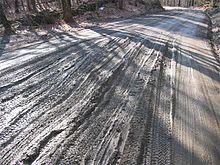

American English regional vocabulary
Regional vocabulary within American English varies. Below is a list of lexical differences in vocabulary that are generally associated with a region. A term featured on a list may or may not be found throughout the region concerned, and may or may not be recognized by speakers outside that region. Some terms appear on more than one list.

Historically, a number of everyday words and expressions used to be characteristic of different dialect areas of the United States, especially the North, the Midland, and the South; many of these terms spread from their area of origin and came to be used throughout the nation. Today many people use these different words for the same object interchangeably, or to distinguish between variations of an object. Such traditional lexical variables include:[a]
However many differences still hold and mark boundaries between different dialect areas, as shown below. From 2000 to 2005, for instance, The Dialect Survey queried North American English speakers' usage of a variety of linguistic items, including vocabulary items that vary by region.[2] These include:
Below are lists outlining regional vocabularies in the main dialect areas of the United States.








A soft drink is generally known in the American Midland as pop, except for being soda around Greater St. Louis in Missouri and Illinois, and coke in central Indiana and central and western Oklahoma[d]
South

Examples in this section are from this published lexicology from interviews carried out between 1965 and 1970, except where otherwise noted
map
Survey and maps
|
| |||||||||||||||||||
|---|---|---|---|---|---|---|---|---|---|---|---|---|---|---|---|---|---|---|---|
| Europe |
| ||||||||||||||||||
| Americas |
| ||||||||||||||||||
| Oceania |
| ||||||||||||||||||
| Africa |
| ||||||||||||||||||
| Asia |
| ||||||||||||||||||
| Related |
| ||||||||||||||||||